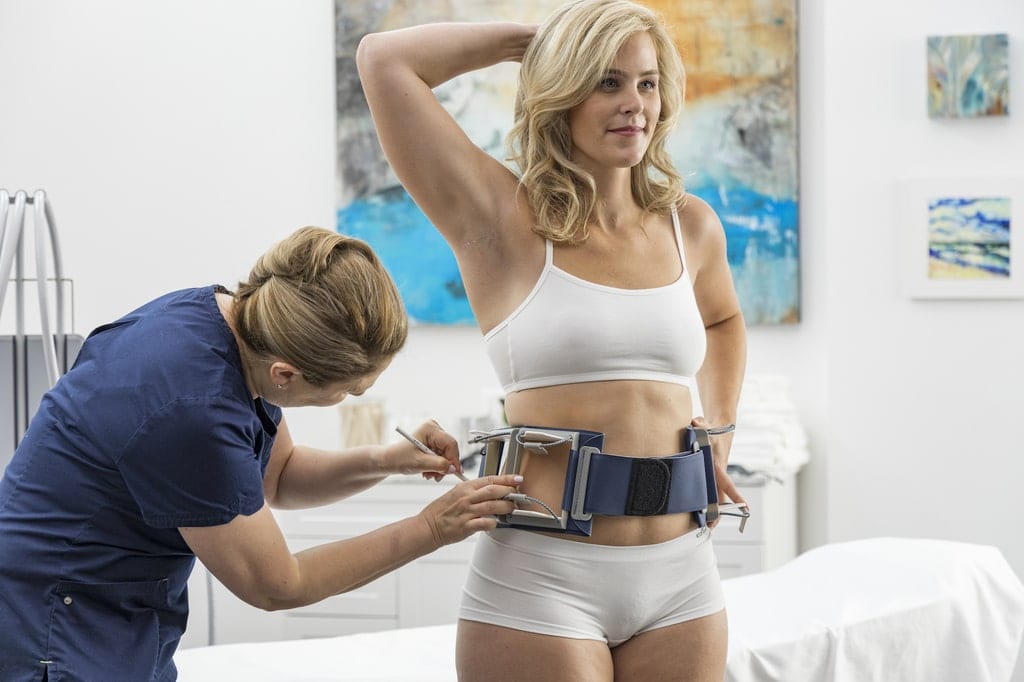Whether you’re looking to create a personalized skincare regimen or just want to know more about your skin type, it’s important to analyze your unique skin complexion and how the products you use impacts your skin. While most people have heard of what it’s like to have dry or oily skin, there are several other types of skin complexion factors that affect the way you see and feel about yourself, and your ability to achieve clear, glowing skin.
Skin Type vs. Skin Products
When it comes to caring for your skin, one size does not fit all. Your skin care regimen should be tailored to your specific skin type and needs. Not every skin care product is safe for everyone. For example, some acne treatments are not suitable for sensitive or dry skin types; they may cause irritation and redness that can worsen existing problems in areas of the face. At times, people also make the mistake thinking their skin is dry when it is actually oily. This occurs because individuals feel their skin getting tight and dry immediately after washing their face. The face can feel uncomfortable in most people for 10-20 minutes after washing it because this is how long it takes for the sebaceous glands to repopulate sebum (natural oil) on the skin’s surface. Then, people rush to apply a moisturizer. But is it the right moisturizer for their skin?
When you’re unsure if you’re choosing the right type of skin care product, you can check with a Valeriya Life expert before using anything on your face; we’ll be able to recommend the ones that will work best for you!
How to Find Out Your Skin Type
Visiting an skin care expert for a consultation can help you determine your skin type. Valeriya Life offers an advanced skin assessment with VISIA imaging system including a questionnaire about your skin health. A careful assessment will help us determine what kind of products and treatments are best for you. Here are some signs to look out for:
- Normal Skin
- Dry Skin
- Oily Skin
- Sensitive Skin
- Uneven Pigmentation
- Wrinkled Skin
Normal Skin
What is healthy skin? Healthy skin is firm and elastic with no visible pores or blemishes—even if you have an oily t-zone! Healthy skin has good blood circulation, making it warm to the touch. It may be red or pink because of sun exposure, but there are no signs of inflammation.
Normal skin produces an adequate amount of oil to maintain good health and quality of your skin. This is why it is considered normal. Normal skin produces 1mg of sebum per 10 cm2 every 3 hours, which is about 30 times less than oily (acne-prone) skin type. If you have normal skin, it’s correct to say that you have optimally oily skin.
Combination skin is a mixture of oily and dry. It’s the most common type, and generally means that you don’t have one extreme condition (like super dry or super oily). This also means that it’s harder to determine what products to use on your face, but we’ll get into that in a minute.
Dry Skin
Dry skin is a common problem, and it comes in two main forms: dryness caused by an imbalance of oil production and dehydration. Most people with dry skin types don’t have radiant-looking skin. People with darker skin tones who have dry skin, may notice ashy-looking skin. You are likely to have dry skin when your skin feels dry, tight, and very uncomfortable for about 20 minutes after washing with a soapy cleanser. Soap washes away natural oils from the surface of your skin. People with dry skin may use heavy moisturizers frequently. They tend to develop rough, flaking, and dull looking skin if they don’t take care of their skin properly. If left unchecked, dry skin can become irritated and itchy.
Oily Skin
Oily skin is common. In fact, one in every three people has this type of complexion. If you have oily skin, the top layer of your skin produces more sebum than normal, and the excess oil can build up on the surface of your face. This causes you to feel greasy and uncomfortable throughout the day. You are more likely to wash your face frequently, have enlarged pores, and have a hard time finding a sunscreen that does not feel greasy.
The main causes of an oily complexion are hormones and genetics—you were born with it! It’s also possible that you’re eating foods rich in sugar (which increases oil production). But don’t worry—there are plenty of ways to treat oily skin so that it looks less shiny throughout the day.
Sensitive Skin
If your skin turns red, stings or burns and you have pimples on your face more than one time a month, you may have sensitive skin. Most people know when they have sensitive skin, but the problem is that you need to know which sensitive skin type you have. There are 4 types of sensitive skin: acne, rosacea, stingers and allergic/susceptible to irritation.
It is possible to have more than one type of sensitive skin. For example, rosacea suffers often have pimples in addition to facial flushing. Stingers do not get redness or pimples but their skin stings when they use a low pH product on their skin such as Vitamin C, lactic acid or the preservative benzoic acid.
Sensitive skin can be easily irritated by skin products, food, medications, lifestyle, and harsh environments. It’s also prone to eczema. VISIA Skin Analysis helps identify hidden inflammatory redness that can predispose to these problems.
Skin with Uneven Pigmentation
Pigmentation is a common skin condition that can make your complexion look uneven. It’s caused by over-production of melanin, the pigment responsible for giving skin its color. The most common causes of pigmented skin are sun exposure and hormones but aging also plays a role in this condition. Unwanted pigmentation can manifest in several ways, including age spots, dark spots (also called melasma), and discoloration.
To get an accurate measure of your complexion condition, use VISIA to take pictures of your face from different angles. By comparing these images with others in its database, VISIA can give you an idea of whether you have been affected by any conditions that affect the appearance of your skin—like melasma or age spots—or whether there has been any damage done by years spent in the sun without proper protection. Based on our accurate analysis, we are able to develop targeted skincare treatments that fade and minimize unwanted pigmentation and effectively improve skin tone evenness, making the skin look younger and fresher.
Wrinkled Skin
As we age, skin changes are inevitable. Environmental hazards and genetics cause the collagen in our skin to break down. As a result, our skin gets less firm and elastic. These effects become more noticeable after age 30 and as we reach 50, our skin starts to age at an accelerated rate. Wrinkles deepen and get harsher with time. The fibrous changes in the dermis make it harder to achieve long-lasting improvements. We use the VISIA Tri-Derma System to measure wrinkle depth by analyzing the 3D topography of your skin and develop a customized treatment plan. This system enables us to track your progress and make adjustments as needed to help you achieve optimal results.
Why Accurate Skin Assessment is Beneficial
Your skin can tell you a lot about your health and wellness. Just like other parts of the body, it’s important to keep your skin healthy and glowing. However, your skin changes as you grow older.Determining your skin type at different ages and adjusting the skin care regimen, can make a big difference in how healthy and attractive your skin looks.
Valeriya Life Medical Spa’s team of experts can help you find the best products for your needs. We provide personalized skincare services based on VISIA assessment and skin oiliness assessment. The right products can make all the difference in how healthy and beautiful your complexion looks! We want you to know that if you have questions about skincare, we are here to help. We want you to be successful at taking care of your skin!
Conclusion
We hope we’ve inspired you to discover your own unique beauty. It’s important to know that there are many different types of skin, and each one requires its own skin care regimen.









